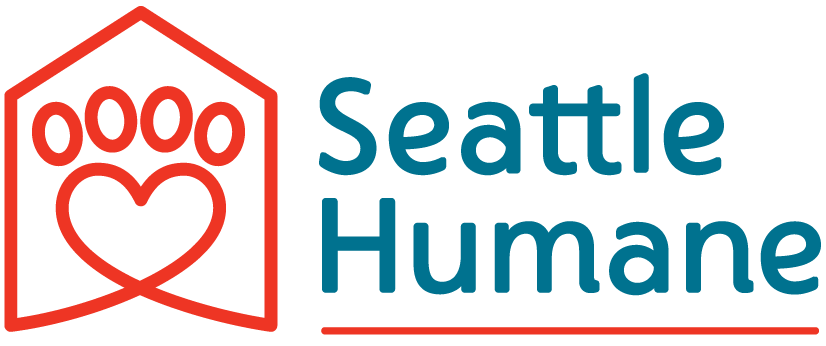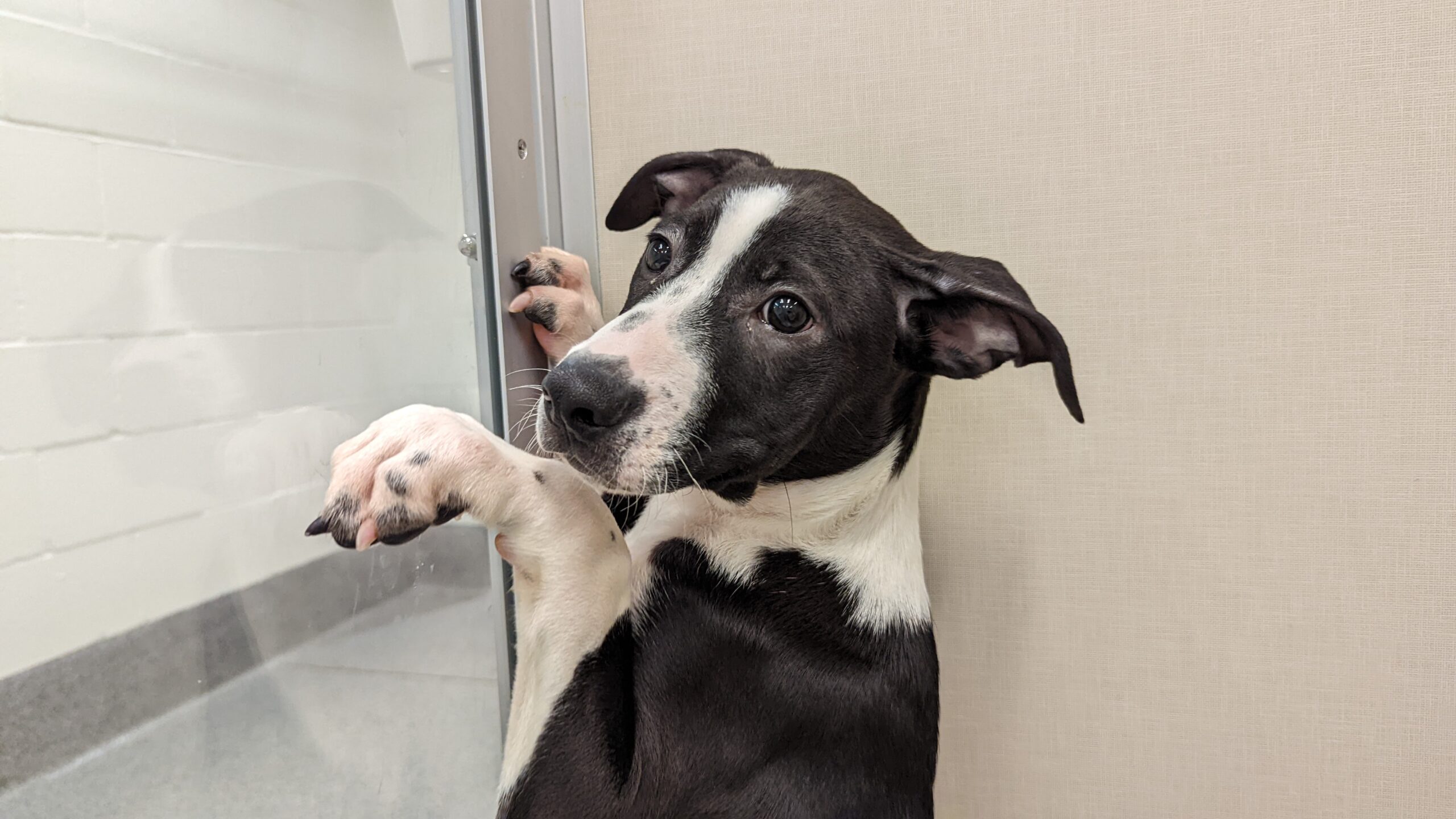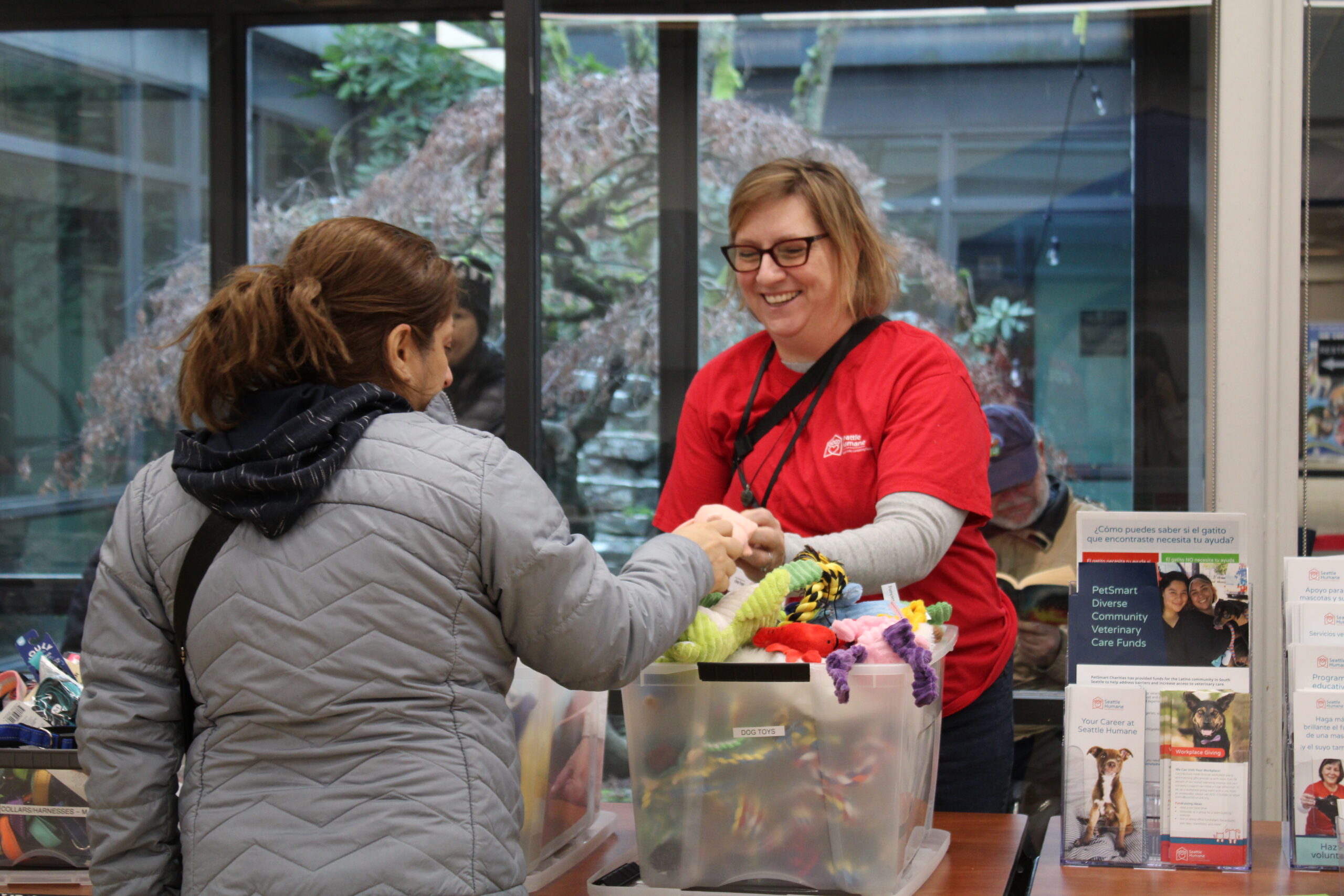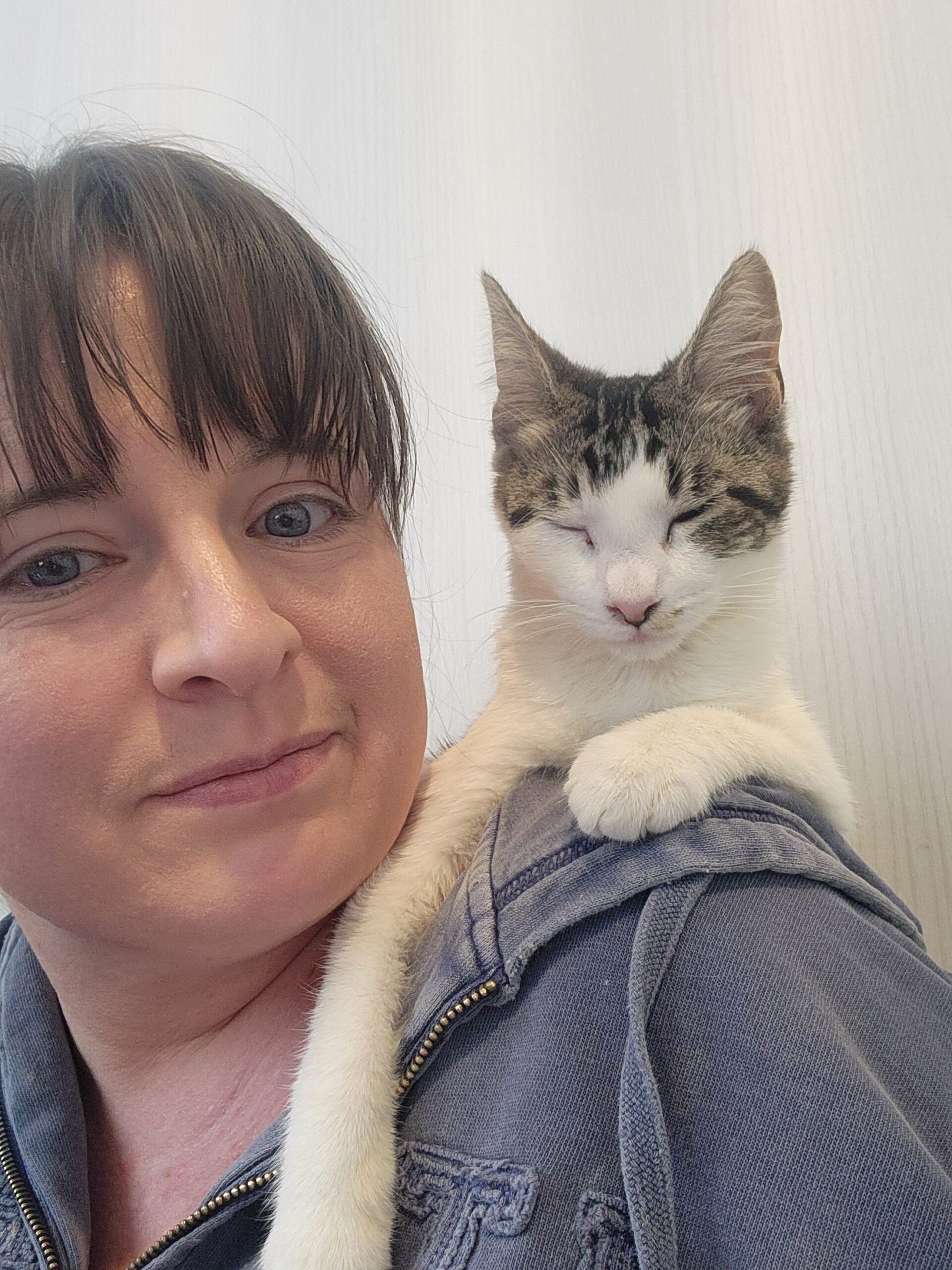
We get this question from our media friends at least once a month.
“We hear a lot of people are surrendering their pets now that they’re having to return to the office. Is that true?”
The short answer: No.
Surrendering a pet is a highly emotional and challenging experience and we hope there is a day when no one has to make that difficult decision. Seattle Humane is a managed intake shelter and surrendered animals account for a third of the adoptable pets that come through our doors. In 2022, we are seeing an increase in pet owners seeking to rehome their pets and shelters across the country are seeing this same trend. However, we don’t believe that this increase is because people are going back to the office. In fact, downtown Seattle’s office occupancy rate is currently below 40%. From our perspective, this trend is instead being driven by increasing levels of financial and housing insecurity.
The current economic instability in our country has hit many local families hard, and people are having to make very difficult decisions for themselves and their pets. Nationally, the number of monthly owner surrenders climbed from 34,579 in January to 43,249 in May. There have been more than 4,300 pets surrendered by their owners in Washington so far this year.
Many people surrendering their pets are not doing so because of the pet, but because their circumstances have changed to the point that they can no longer support them. Seattle Humane received more than 2,400 owner surrender requests in 2021. For the first 6-months of 2022, we have received nearly 1,500 owner surrender requests. The number of pets we’ve accepted due to housing insecurity in 2022 has nearly reached the total intakes due to housing concerns in all of 2021. At this rate, we can project the number of pets surrendered this year related to housing issues will far exceed our total in 2021.
We launched a number of new community programs in summer 2020 – at the height of the pandemic – to support people in need of pet-related financial assistance, temporary foster care, veterinary care and more. These programs remain in high demand as the nation faces economic obstacles on multiple fronts, and we will continue to serve pets and the people who love them to the best of our ability. These programs and other referrals provided by our Pet Resource Center have helped divert many pets out of the shelter system.
Seattle Humane is in the same position as many shelters here in the Pacific Northwest, where we have seen a massive increase in requests for pet assistance, and particularly for temporary foster support through our SPOT (Supporting Pet Owners In Transition) program. We are continuing to grow our Foster Program to better support both adoptable pets and pets in our community, but the reality is that the demand is still exceeding our capacity. Shelters and rescues across the region are similarly seeing the rate of requests for temporary foster support outpacing availability.
Nationwide, and in Washington specifically, shelters are seeing an influx of animals coming in with behavior concerns that were previously well managed by their pet owners. When people are forced to downsize or change their lifestyle due to economic hardships, that’s when they find themselves facing challenges to support these otherwise manageable behavioral concerns. This is especially true in Seattle’s urban environments. Dogs who have lived in a home with a large yard, and now are being relocated to busy apartment complexes are struggling to adjust. These behaviors become even less manageable when an animal comes into a shelter environment for rehoming.
We took in 90 pets due to animal behavior concerns in 2021 and have already taken in nearly 60 behaviorally challenged pets in the first six months of 2022. It is highly likely we will see the total intake of pets surrendered by owners due to behavior concerns surpass the number of pets received last year. We recently re-opened our public dog training courses, and encourage owners to sign up.
While adoption interest remains steady in general, adopters are less likely right now to adopt a pet that requires a lot of management, which is causing a bottleneck in the sheltering system. For the first time in five years, this overcrowding has resulted in an increase in the euthanasia rate nationwide. Data collected by Best Friends shows pets euthanized in the U.S. shelter system increased from 347,000 to 355,000 in 2021.
At Seattle Humane we believe no healthy, behaviorally sound animal should be euthanized and there are no limits placed on pets in our care for space or time. Pets receive the medical care and behavior support they need to thrive in new homes. Like other shelters, we are seeing many dogs with manageable behavior concerns waiting many months for families to adopt them.
When the media asks us if people returning to the office is contributing to animals being surrendered, we have to say no. However, one could assume that this is a factor for some when considering adopting pets with greater needs, whether related to behavior or medical conditions. Many people simply are not in a position to adopt a pet that requires extensive time and resources to support them.
In addition to financial and housing insecurity, pet owners face another very real challenge, access to veterinary care. Veterinarians across the United States and especially here in Washington are working diligently to meet the ever-growing demand. In a recent analysis of King, Snohomish and Pierce Counties, it was estimated that an additional 181 veterinarians are needed just to meet the community’s demand for basic annual veterinary services. This means long wait times, high stress levels on veterinary workers, and limited access. As part of our five-year strategic vision, Seattle Humane is committed to addressing these challenges and breaking down barriers to affordable veterinary care.
So, how can you help?
- Adopting is great, of course, especially when a large percentage of surrenders we’re seeing right now are unwanted and unplanned litters of kittens.
- Make a donation to help us grow our community programs, supporting pets and their people.
- You can drop off pet food, cat litter and other supplies outside our Pet Food Bank, or donate items through our Amazon Wish List. Pet food and supplies are always in high demand – more so now than ever before.
- If having to return to the office is a concern for you, we recently teamed up with our friends at Trupanion to encourage and provide resources to help more businesses create dog-friendly workplaces. You can learn more about the “Working K9 to 5” program here and pass it on to your Human Resources department.
If you or someone you know is facing a financial challenge, medical emergency or any other life event that has put you in the position of making the heartbreaking decision to surrender or rehome a pet, Seattle Humane may be able to help. You can find more information here and send specific questions to our Pet Resource Center at pethelp@seattlehumane.org.
